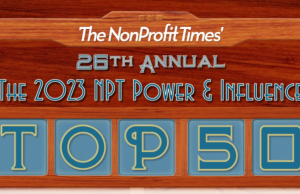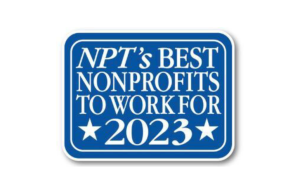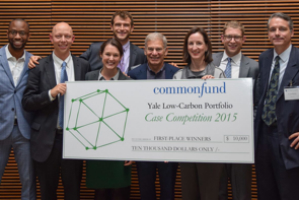Almost three-fourths of Black-led and Black-benefiting nonprofits are led by their founders. Collectively, the majority of those leaders work full-time in their organizations (73.3%), while 26.7% work part-time.
Leaders tend to not be new to social change, with most having been in the nonprofit sector for 11 years or more (52.9%).
That data is part of a new report “Grassroots, Black & Giving: How Philanthropy Can Better Support Black-led and Black-benefiting Nonprofits.” It was released one day after Give 8/28, an annual event initiated by the Young, Black & Giving Back Institute to promote financial giving for Black-led and Black-benefiting nonprofits. More than 350 nonprofits participated.
“It is time for philanthropy to center and abundantly resource Black-led and Black-benefiting social change,” said Ebonie Johnson Cooper, founder and executive director of the Young, Black & Giving Back Institute. “Philanthropy must address the funding gap for Black-led social change and recognize that a strong, localized Black-led nonprofit sector is essential to thriving Black communities.”
Supported by the Nielsen Foundation through its Data for Good grant program, the report has data on Black-led and Black-benefiting organizations, particularly organizations with budgets less than $500,000. Findings show that these nonprofits are often grassroots, hyper-local, and founder-led, with deep connections to the communities they serve. However, they encounter difficulties in accessing diverse and sustainable funding, and getting capacity-building support in crucial areas like coaching, financial management, and fundraising.
Among the key findings:
- Black-led and benefiting nonprofits do a lot with a little, with 76.7% of the nonprofits surveyed operating on a budget of less than $500,000 a year; nearly one third operate with just $30,000 a year.
- These organizations manage largely with volunteers, with 43.5% operating without any paid, full-time employees, and 45.65% indicating that they didn’t have any paid, part-time employees.
- An overwhelming majority of survey respondents were women (79.6%) and most fall within the age categories of 35-44 (28.3%) and 45-54 (26.8%).
- Black-led and benefiting nonprofits primarily focus on addressing the direct needs of Black communities, spanning areas like poverty, health, education, and workforce development.
While the Philanthropic Initiative for Racial Equity (PRE) estimates that funding for racial equity reached $3.4 billion, and financing for racial justice reached $1.07 billion following the murders of George Floyd and Breonna Taylor in 2020, no clear data exists on how much of the granted funds actually reached grassroots Black-led and Black-benefiting nonprofits, according to the report’s authors.
The report by Young, Black & Giving Back Institute sheds new light on the fundraising challenges Black-led and Black-benefiting nonprofits face as they carry out their mission. Among those findings:
- 86.5% report always or often have trouble accessing a large, diverse number of funding sources, and 72.7% always or often face the challenge of identifying or cultivating new funders.
- More than half (52.9%) always or often face the challenge that their organization would shut down if they lost one or two key funders.
- 71.9% agree or strongly agree that attracting support from non-Black donor funding is critical to their survival or growth.
- 85% agree or strongly agree that they are expected to accomplish much more with fewer resources by institutional funders and donors relative to white-led organizations.
- 60.8% believe funders never or rarely create funding opportunities that are specifically targeted to Black-led, Black-serving organizations.
- 69.9% believe funders never or rarely help other funders recognize the value of Black-led, Black-serving organizations and encourage them to fund these organizations.
Despite these challenges, Black-led and benefiting nonprofits continue to make a positive impact in their communities. Philanthropic institutions have an opportunity to fuel their work by centering their investment in Black-led and benefiting organizations, providing capacity-building support for them, and trusting their expertise in pursuing authentic social change strategies. The report calls on philanthropic institutions to:
For more information: www.youngblackgivingback.org










